Israel's Bennett To Make First Visit To Bahrain On Monday

Israeli Prime Minister Naftali Bennett will travel to Bahrain Monday in the highest-level visit since the countries established relations in 2020 in part on shared worries about Iran.

Israeli Prime Minister Naftali Bennett will travel to Bahrain Monday in the highest-level visit since the countries established relations in 2020 in part on shared worries about Iran.
Bennett will meet with Bahraini Crown Prince and Prime Minister Salman bin Hamad al-Khalifa, his office said.
"The leaders will discuss additional ways to strengthen bilateral ties...especially the advancement of diplomatic and economic issues, with an emphasis on technology and innovation," it said in a statement.
The two-day trip to Bahrain, home to the US Navy's Gulf headquarters, comes amid heightened tensions after missile attacks on neighboring United Arab Emirates by Yemen's Iran-aligned Houthis. Israel also normalized ties with UAE in 2020.
Israel has stepped up cooperation with the Gulf states. Manama hosted Israel's defense minister on Feb. 2 and has said an Israeli military officer will be posted in Bahrain as part of an international coalition.
On the commercial front, Israel has reported rising trade with Bahrain that reached $6.5 billion last year. There are direct flights between the countries.
The outreach by Bahrain's Sunni Muslim monarch has been criticized by an opposition led by the Shi’ite majority. The country has seen protests in solidarity with the Palestinians.
Report by Reuters
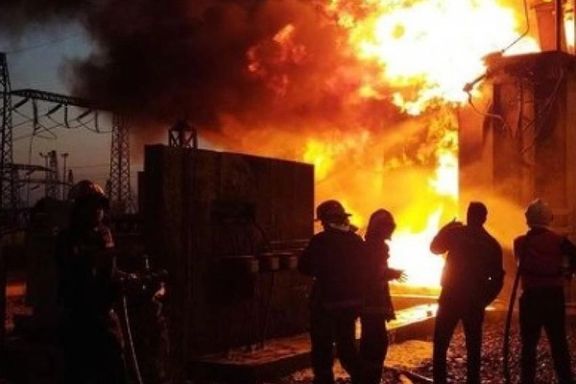
A fire broke out in a Revolutionary Guard (IRGC) military base in western Iran, local media reported, but the cause of the blaze was not immediately clear.
The fire started in a stockroom where motor oil and other flammable materials were stored in the Mahidasht district of Kermanshah province Monday morning, according to what government-controlled media said.
Initial reports said an industrial shed was damaged in the fire, which was put out by firefighters.
Teams have been dispatched to the base to investigate the cause of the incident.
Earlier in mid-January, social media reports by journalists and citizens said a series of loud explosions were heard in Western Iran, around the cities of Hamedan and Kermanshah. Some reports quoted Iran's Revolutionary Guard as saying that they launched air defense drills in the region, but residents reported anti-aircraft activity in the area.
Also in January, a large fire sparked by a rupture of an underwater pipeline interrupted production at one of the transmission pipelines of phase 16 of Iran’s South Pars gas field in the Persian Gulf.
Iran has been the scene of mysterious attacks since July 2020 that twice caused explosions in its high-security Natanz uranium enrichment facility, causing major damage.
The frequency of accidents in Iran’s energy facilities is increasing with some blaming lack of proper maintenance of the aging infrastructures and some suspecting sabotage by other countries, presumably Israel.
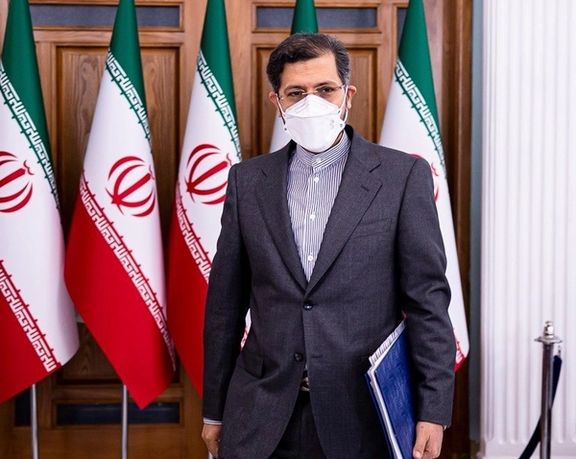
Iran's foreign ministry spokesman said on Monday that a prisoner swap with the United States was on the agenda in parallel with the nuclear talks in Vienna.
"This issue is currently on the agenda in parallel with the Vienna talks.... But it seems that the US has not made a decision on it. Perhaps it is waiting for the results of the talks," said Saeed Khatibzadeh.
This is the first time that an Iranian official says official talks over foreigners and dual nationals detained in Iran with the United States have been on the agenda in Vienna. Tehran has refused to directly negotiate with Washington since nuclear talks began last April in Vienna.
Iran is holding several Western prisoners in what human rights organizations have dubbed hostage diplomacy. As in past instances, Tehran is demanding the release of Iranian detained in the US for breaking sanctions laws and related offenses.
European powers, the European Union and Russia are shuttling between the two sides, while there have been more calls in Iran to negotiate directly with the US.
Khatibzadeh also said that the nuclear talks have not “reached a dead end.” Ten months after negotiations began still major issues of which US sanctions should be lifted and how Iran should return to its obligations under the 2015 nuclear agreement remain unresolved.
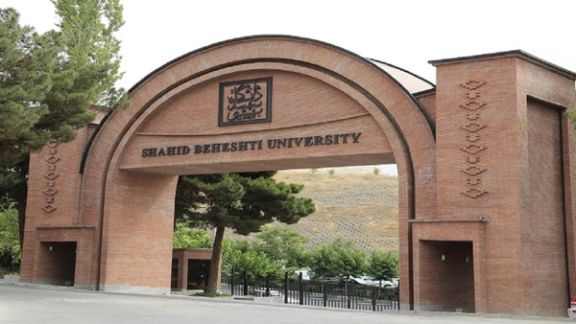
More than one hundred Iranian academics from around the world have condemned recent firings of professors in Iran, calling it an intensification of suppression.
In an open letter, 105 academics, mostly from American universities said that recent layoffs of professors from Iranian universities were political in nature and cannot be justified on scientific or professional grounds.
The letter followed news in January that at least three professors were fired from their jobs. Sociologist Mohammad Fazeli, professor of philosophy Arash Abazari and social science lecturer Reza Omidi got the pink slip without a clear explanation. Each had excelled in their field. Abazari is well-known for his book Hegel's Ontology of Power: The Structure of Social Domination in Capitalism, which was published by Cambridge University Press. Fazeli’s works focus on sociology of politics and science, especially in the energy sector.
On Saturday, news emerged that Islamic Azad University in Iran has fired more than 300 professors and lecturers and is planning to fire 1,500 more from its campuses around the country. It is not clear whether this is related to financial pressure amid Iran’s economic crisis or a way to politically “cleanse” the academia.
The academics residing outside Iran said in their letter that based on the academic credentials of the professors in Iran, “it is clear that the firings cannot be justified.” The quality of their scientific research was not the reason for the decisions. The policy to fire professors is the result of “intolerance and lack of respect for academic freedom.”
The letter demanded the “unconditional return” of the professors to their posts, so that they can continue to serve the society and their students.
Among the academics who signed the letter there are Professors of Emeritus from Yale University (Abbas Amanat), Pace University (Reza Afshari), City University of New York (Ervand Abrahamian), Bennington College (Mansour Farhang) and many others.
Other academics of Iranian descent from the United Kingdom, France, Denmark, Sweden Holland, Switzerland and other countries have also signed the open letter.
The letter does not name any of the professors fired in Iran, not to endanger their security. The Islamic Republic will probably retaliate against them if their name comes up in a context of criticizing the clerical government. Universities in Iran are controlled by the government and decisions to fire professors are suggested or approved by bureaucrats.
Dr Kazem Alamdari of California State University, Northridge told Center for Human Rights in Iran that “We did not want to endanger the professors in Iran, but we wanted to speak out about this, because we believe that putting authorities under the pressure of public opinion is most impactful approach.”
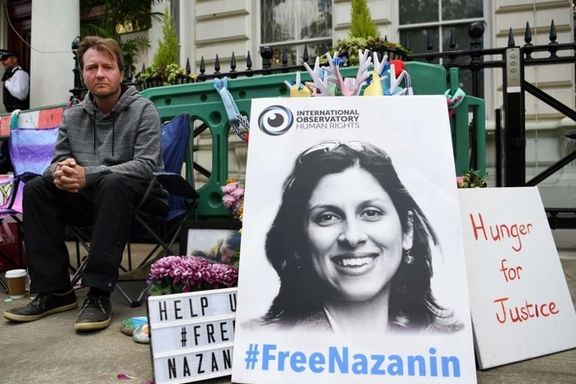
Husband of British-Iranian charity worker Nazanin Zaghari-Ratcliffe, who is detained in Iran, demands transparency from the UK authorities about a deal to bring her home.
According to a Guardian report on Sunday, Richard Ratcliffe said his wife is “very, very angry” after learning about the collapse of a deal. Zaghari-Ratcliffe was arrested in Iran in April 2016 and spent five years in prison. She is now out of prison but not allowed to leave the country.
He husband says she fears she is a “bargaining chip” in ongoing nuclear talks and is filled with “anger at her life being stolen” and the government’s “lack of urgency” in securing her release.
MPs were told the UK had signed an agreement to secure her release in the summer, but that the deal had fallen through. The UK government has not revealed why the agreement fell apart, but there are fears it is linked to nuclear negotiations with Iran.
Britain is understood to have agreed to repay a £400 million debt it owes Iran relating to an abortive deal to export British armaments in the 1970s.
“I could have been home last year. Why am I still here? They have ruined my life, day by day, for six years. Where is [Johnson’s] urgency? I just want to come home,” the husband quoted her as saying.
Rights groups accuse Iran of holding dual-nationals as bargaining chips for money or influence in negotiations with the West, something Tehran denies.
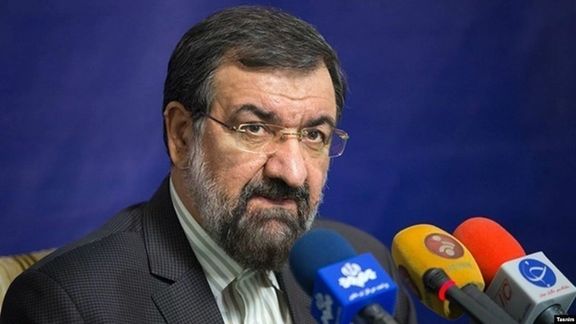
Iran’s vice president for economic affairs says there are many domestic problems that are hindering the country’s progress more than the Western sanctions.
On the sidelines of an exhibition titled Achievements and Capabilities of the Jihadi Management on Sunday, Mohsen Rezaei told reporters that the biggest obstacles the economy faces are not imposed from the outside but stem from the internal problems, which he called “domestic sanctions.”
Rezaei described cumbersome and bureaucratic regulations, contradictory and inefficient laws and corruption in the country’s administrative system as the domestic sanctions that are “10 times more detrimental” to Iran’s businesses and industries.
He noted that economic reforms are the only way to get past these hindrances, adding that the current administration has started with trade reforms and then will pursue monetary reforms.
Rezaei added that the people should not feel the pressures of government’s budget deficit while they are also suffering from high tax rates as well as inflation.
The long process to get government permits to do business, lack of a good legal framework in the country, and unfair taxation are the main elements leading to unfavorable conditions in the country’s production sector.
Iran faces serious problems in three major indicators: Economic growth, the rate of inflation and the unemployment rate.